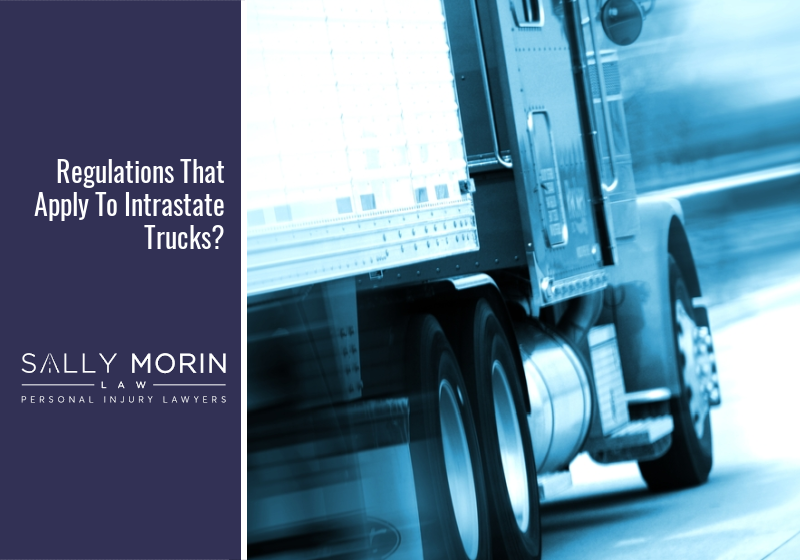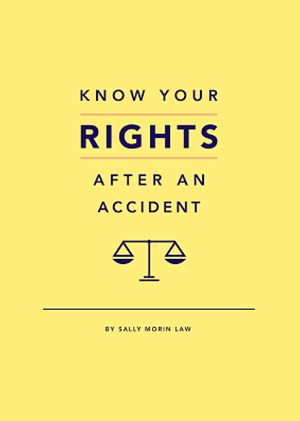Do you know the difference between interstate trucks and intrastate trucks? Interstate trucks cross state lines and travel among many states.
Intrastate trucks, on the other hand, operate only within a single state. Here in California, intrastate trucks never go outside our state lines. We’re talking about trucks like dump trucks, garbage trucks, tow trucks, bucket trucks, work trucks, box trucks, and delivery trucks.
While these trucks are governed by Federal Motor Carrier Safety Administration (FMCSA) regulations, there are additional regulations that apply through the state regulatory agencies within California. Here’s what you need to know about intrastate trucks.
California Has Several Trucking Regulatory Agencies
The first agency that governs intrastate trucks is the California Public Utilities Commission. It issues permits to operate trucks in California. In addition, the California Department of Motor Vehicles (DMV) requires an active motor carrier permit.
The California Department of Public Safety is involved, as is the California Highway Patrol (CHP). The CHP issues the California ID numbers that you might see displayed on some of these trucks, usually on the driver’s side door. Looking at these numbers is a good way to identify the vehicle if you need to make a complaint against the driver or company.
Rules Intrastate Truckers Must Follow in California
California intrastate truckers must follow meal and rest break rules set forth by the state. This means they are required to take breaks during the workday to eat, rest, and remain alert.
Trucking companies must give their truckers time for these state-mandated breaks. They should also keep logbooks that track truckers’ movements and note meal and rest periods.
Another California rule is a bit different from federal regulations. California has an 80 Hour 8 Day Rule, which means a trucker can’t drive more than 80 hours in an eight-day consecutive period. In addition, they must take 10 hours off before starting a new work period.
These rules are intended to keep truckers fully rested and capable of safe driving on California’s roads. Truckers and trucking companies who break the rules open themselves up to fines and lawsuits over their violations.
California’s Trucking Insurance and Liability Rules
Trucking insurance is mandatory. For trucks that stay in California without crossing state lines, there is a minimum insurance requirement of between $300,000 and $1 million depending on the type of truck and cargo.
A truck transporting dangerous materials like corrosive chemicals or hazardous waste should carry insurance that’s closer to $1 million. But at an absolute minimum, any intrastate truck should have $300,000 in insurance coverage.
The state requires this insurance coverage to protect injured victims of trucking accidents. When a trucker hurts you on the road, it’s your right to take action against them. At Sally Morin Personal Injury Lawyers, we help injured people stand up to trucking companies and will help you seek the compensation you deserve.
We Handle Your Accident Claim So You Can Focus On Your Life
After an accident, contact the attorneys at Sally Morin Personal Injury Lawyers. We handle many types of personal injury claims, including truck accidents. We believe you should be able to focus on recovering from your accident while we handle the legal details.
We truly care about the people of California. Contact us today for a free online case evaluation.
Intrastate trucks are trucks that are operated only within California and they never go outside state lines. So these are trucks like dump trucks, garbage trucks, tow trucks, bucket trucks, like Comcast, or box trucks like UPS and FedEx. These trucks are governed by the Federal Motor Carrier Safety Regulations, but there are also additional regulations that apply through the state regulatory agencies within California.
Some of these agencies include the California Public Utilities Commission. You have to have a permit through them to operate a truck in California. The California DMV requires that you carry an active motor carrier permit. The California Department of Public Safety is involved, and also the California Highway Patrol. It’s actually the California Highway Patrol that issues the California ID numbers that you might see displayed on some of these trucks, usually on the driver’s side door. And that’s a good way to identify the vehicle if you need to make a complaint or anything like that.
Some of the other rules that govern trucks that are driven solely within California are called the meal and rest break rules. And this basically just means that the employers are required to give their employees breaks during the workday so that they can eat, take a break, to make sure that they stay alert and well rested.
The other rule in California, that’s a little bit different than federal regulations is called the 80 Hour 8 Day rule. And this means that a truck driver cannot drive more than 80 hours in an eight-day consecutive period. And they also have to take off 10 hours before they can start a new work period. This is again, just to make sure that the drivers are staying rested and alert and as always is just to prevent accidents and to promote safety.
Trucks that are driven specifically in California and do not leave state lines, the minimum insurance requirements for liability coverage are usually between 300,000 to a million dollars depending on the type of truck and what is being transported. So if you’re transporting a hazardous material or something that’s more dangerous, obviously you’re going to be pushing up towards the end of that spectrum towards a million dollars. But baseline minimum, you’re going to be looking at $300,000 in coverage for all of those types of trucks that I just talked about.











